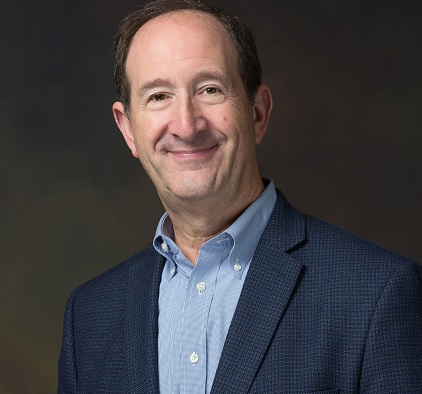1.) Tell us about your career. What does a typical day look like?
After spending most of my career practicing geriatric medicine in office, hospital and nursing-home settings, I decided to accept a position as a medical director of an Institutional Special Needs Plan, generally known as the “EverCare model.” Although I gave up direct patient care, I joined a team of professionals providing oversight for a population of several thousand nursing home residents, who had enrolled in the plan. My responsibilities now run the gamut from meeting with prospective nursing home medical directors, physicians, and executives and informing them about the program to providing teaching, coaching, rounds, and individual clinical conversations about challenging cases to many of our 150 nurse practitioners and physician assistants.
The most appealing aspect of my job is that there is no “typical day.” Activities in a given day could include making individual phone calls about the management of sepsis or delirium, advising nursing home leaders about new state regulations governing Do-Not-Resuscitate (DNR) orders and Medical Orders for Life-Sustaining Treatment (MOLST), answering questions about how to accurately document specific conditions and their corresponding ICD-10 codes, and counseling clinicians on how to engage in serious-illness conversations and advance care planning.
2.) Tell us about your advocacy work.
In my role as AGS advisor to the Current Procedural Terminology (CPT) Editorial Panel, I work with several other AGS members as part of our “CPT/RUC SWAT” team. Among other functions, we try to influence the publication and valuation of CPT codes, those 5-digit billing codes submitted by physicians and other healthcare providers representing the services they provide.
For many years, we’ve been trying to obtain recognition that comprehensive geriatrics assessment represents a service distinct from other “evaluation and management” services. In our first attempt 15 years ago, the CPT Editorial Panel rejected our proposal on the grounds that comprehensive geriatric assessment was not a distinct service. Over the last 15 years, a number of us have advocated for recognition that there are aspects of assessment and management for complex geriatric patients that differ from those for typical patients seen by an internist or family practitioner.
As a result of this advocacy, as well as identifying opportunities presented by the changing landscape of medicine, we were able to attain recognition by both the CPT Editorial Board and the Centers for Medicare & Medicaid Services (CMS) for distinct services such as transitional care management, chronic care management and cognitive assessment and management, among others. Although much of this work has been behind the scenes, I’m proud to be among a distinguished group of geriatricians and consultants who have influenced the codification of medical services and improved reimbursement for the very valuable work that geriatricians do every day.
3.) How does the work you do in advocacy impact the way you think about your career?
I feel privileged to have the opportunity to engage in the management of population health on both micro and macro levels. While there is no denying the satisfaction of getting to know and care for older adults on an individual basis, there is also satisfaction in being able to impact the quality of care rendered by other clinicians and the clinical staff of the nursing facilities where they practice. For me, it’s the perfect marriage between geriatric medicine and population health!
4.) What are some of the regular challenges you face, and how have your training and past experiences helped you meet them?
Like many geriatricians, I have had to respond to physicians and other clinicians who misunderstand our specialty or what makes it distinct from their own. How do we explain the art and science of managing multiple co-morbidities and polypharmacy with geriatric syndromes, functional impairment and cognitive deficits? I describe it to skeptics as a juggler on a tightrope, keeping several balls in the air. No—I’m not the one on the tightrope. That’s the patient. I’m on the ground, feet firmly planted, trying to coach the patient.
It’s always helpful to have a few good anecdotes and examples to illustrate how geriatric medicine works, thus my past clinical experiences always come in handy. Whether discussing geriatric syndromes, such as falling, incontinence, cognitive impairment, functional impairment, or discussions around decisional capacity, advance directives or palliative care, skeptics will frequently respond positively to examples of positive outcomes, particularly those that illustrate the complex interplay of functional status, co-morbidities, cognitive impairment, and polypharmacy.
5.) What do you want someone interested in a career in geriatrics to know? What types of skills or traits are necessary for this work?
When folks inform me that “Being a geriatrician must take a lot of patience,” I don’t object. On the other hand, I let them know that practicing geriatrics takes diligence, attention to detail, careful listening, and the willingness to be satisfied with incremental improvement when cure is not possible. Mostly, I emphasize that practicing geriatric medicine is intellectually stimulating, personally rewarding, and—yes—fun!

